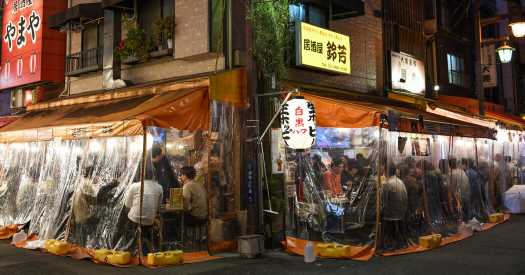The authorities in Tokyo requested on Monday that restaurants and bars close by 8 p.m. to prevent further spread of the coronavirus, an announcement that came after the Japanese prime minister, Yoshihide Suga, said that the central government would consider declaring a state of emergency in the capital and in three surrounding prefectures for the first time since April.
With Tokyo recording a record high of 1,337 cases in one day last week, Governor Yuriko Koike said, “We should clearly recognize that the infection situation is in a completely different stage.” The metropolitan government has asked residents to refrain from all but essential outings after 8 p.m. Restaurants serving alcohol will be required to close at 8 p.m. starting on Jan 8; all other restaurants will have to follow suit on Jan. 12, with the restrictions in place through the end of the month. Ms. Koike said that the metropolitan government would also ask subway and train lines to end service earlier each evening.
Companies have been encouraged to allow employees to work from home, and universities have been asked to move classes online.
Mr. Suga said that the central government would consider declaring a state of emergency later this week. Japan has reported a total of more than 240,000 cases and more than 3,500 deaths.
Last month, as Japan detected cases of the more transmissible variant of the coronavirus that first emerged in Britain, the government closed the borders to foreign travelers. Mr. Suga also suspended government subsidies for a domestic travel program.
Legally, a state of emergency in Japan cannot mandate a lockdown but relies on voluntary compliance. Mr. Suga said that the government was considering punishments for businesses that do not comply with requests, as well as compensation for businesses that have to close early.
Japan has not yet approved any of the vaccines that are being rolled out in the United States, Europe and other parts of the world. But it has contracts to buy doses from Pfizer, Moderna and AstraZeneca, and Mr. Suga said he hoped that his country would start vaccinating medical workers and older adults by the end of February.
Source: Read Full Article
